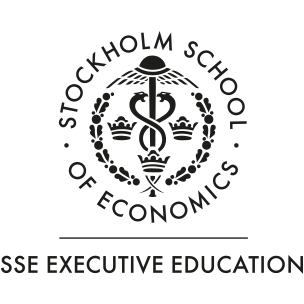
Book recommendations for the summer of 2021
At SSE Executive Education, we provide organizations and their leaders with new knowledge, new ways of thinking and new tools to successfully drive their organizations into the future. For the summer, we would like to recommend some books that challenge thoughts, habits and perspectives in a time of change.
Wishing you a summer of inspiration!
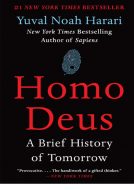 HOMO DEUS – A BRIEF HISTORY OF TOMORROW
HOMO DEUS – A BRIEF HISTORY OF TOMORROW
Author: Yuval Noah Harari
Recommended by: Sebastian Krakowski, Assistant Professor at the Stockholm School of Economics and Program Director of From Data to Business Impact at SSE Executive Education.
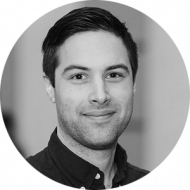
“Harari’s first book Sapiens: A Brief History of Humankind is a grandiose retrospective that explores how human beings became the world’s dominant species through abstract thinking and large-scale collaboration. The sequel, Homo Deus: A Brief History of Tomorrow, instead looks ahead and explores what human ambition and technological progress imply for our future. Just like its predecessor Sapiens, Homo Deus conveys thought-provoking ideas in a pedagogical and inspiring manner, this time delivering a multidisciplinary inquiry into what the future holds.
As society is undergoing rapid digitalization and generating vast amounts of data, sophisticated algorithms are becoming increasingly capable in predicting the future, giving us virtually godlike powers in our pursuit of happiness and immortality. Artificial intelligence has already exceeded humans in tasks ranging from games and mathematics to recruitment and medical diagnostics. However, Harari warns that we may be taking an evolutionary step that renders humanity obsolete. The reason is that democracy and free will are threatened when we cede decision making to algorithms, which know us better than we know ourselves.
The book is a well-written and captivating journey into the future that illustrates the transformative power of digital technology.
At the same time, Harari’s dystopian scenarios serve as a valuable reminder of the immense responsibility that rests on humanity’s shoulders in terms of the development and application of intelligent machines.”
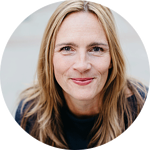 FOUR BOOKS ABOUT CONFLICT MANAGEMENT
FOUR BOOKS ABOUT CONFLICT MANAGEMENT
Recommendations by: Emma Stenström, Associate Professor and Director of Center for Arts, Business & Culture at Stockholm School of Economics
“Summer is such a good time for practicing conflict management skills. There are so many conflicts during summer: in politics, relationships, and around screen-time. And conflicts are so essential if we want to develop ourselves, our relationships, and our organizations. So why not take some time this summer to learn – and practice – some skills that can help turn your conflicts into healthy, productive ones? Here are four books I highly recommend as summer conflict readings.”
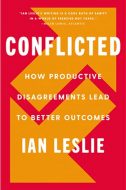 CONFLICTED: WHY ARGUMENTS ARE TEARING US APART, AND HOW THEY CAN BRING US TOGETHER
CONFLICTED: WHY ARGUMENTS ARE TEARING US APART, AND HOW THEY CAN BRING US TOGETHER
Author: Ian Leslie
“This is a well-researched, but highly practical book about conflicts. Ian Leslie makes a strong argument for why conflicts are necessary in organizations and relationships. He offers lots of good advice that you can start using the very same minute you finish the book.”
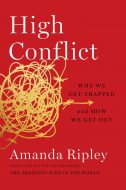 HIGH CONFLICT. WHY WE GET TRAPPED AND HOW WE GET OUT
HIGH CONFLICT. WHY WE GET TRAPPED AND HOW WE GET OUT
Author: Amanda Ripley
“Amanda Ripley is an American journalist, who tells fascinating, complex stories about some very difficult conflicts, and how they eventually got solved. One thing is sure: there are no easy, quick fixes. But there is hope – and tons of knowledge in this book.”
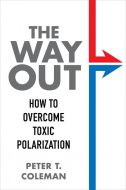 THE WAY OUT: HOW TO OVERCOME TOXIC POLARIZATION
THE WAY OUT: HOW TO OVERCOME TOXIC POLARIZATION
Author: Peter Coleman
“Peter Coleman is professor at Columbia University and founder of the ‘Difficult Conversations Lab’. He puts polarization into context and shows the many forces behind, but also how we can – if we work together – overcome it. The book is accompanied by tons of great exercises, that put the theoretical knowledge into practical action.”
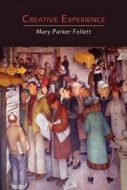 CREATIVE EXPERIENCE
CREATIVE EXPERIENCE
Author: Mary Parker Follett
”Or any other book by her. Mary Parker Follett suggest that we aim for a solution that is neither a compromise nor pure persuasion, but rather integration of different perspectives. The outcome of a conflict should be something new, something that was not there before. Or, as she expressed it herself: ‘conflict is resolved not through compromise, but through invention’.”
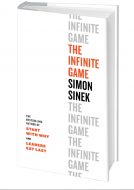 THE INFINITE GAME
THE INFINITE GAME
Author: Simon Sinek
Recommended by: Anders Richtnér, CEO, SSE Executive Education
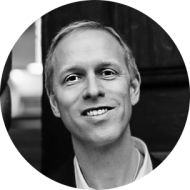 “It is hard to believe how fast change can come – and how quickly we adapt to change. Over the last year we have found ourselves greeting one another through a cell phone or computer screen. We have been invited to dinners and parties using various digital channels. Our daily interactions have profoundly been challenged and changed as a result of COVID-19. Many of us feel a new tenderness, but also a new anxiety, and I guess almost all of us agree that we suddenly find ourselves in a new world.
“It is hard to believe how fast change can come – and how quickly we adapt to change. Over the last year we have found ourselves greeting one another through a cell phone or computer screen. We have been invited to dinners and parties using various digital channels. Our daily interactions have profoundly been challenged and changed as a result of COVID-19. Many of us feel a new tenderness, but also a new anxiety, and I guess almost all of us agree that we suddenly find ourselves in a new world.
During the pandemic leaders, teams, individuals, and society at large have over and over again had to tackle [new] challenges most of us were unaware of just weeks ago. We have used our newly acquired skills to find creative and sustainable solutions. In many ways it is like watching the evolution of an entrepreneurial and responsible mindset, unfolding in real time across the globe.
Being faced with the pandemic it has been a blessing to have Simon Sinek’s book The Infinite Game close at hand. The book describes the difference between finite games and infinite games. Finite games are games where winners and losers are easily identified as the players are known, the rules are fixed, and the endpoint is clear – just like a game of chess, soccer, or basketball.
However, as Sinek explains, the world does not consist of finite games, but rather a lot of infinite games. These are games where the rules are changeable, the players come and go, and there is no defined endpoint. There is only ahead and behind.
During the pandemic it is obvious that we are in an infinite game. Wouldn’t you agree?
According to Sinek, in these types of situations the only way going forward – and one of the key insights for me reading the book – is that we cannot play with a finite mindset in an infinite game.
Instead, we need to embrace the ability to adopt an infinite mindset, as the necessary prerequisite for any leader, his or her team, and the individuals working in the organization, if they truly aspire their organization to be in a better shape the day after tomorrow.
The book has more advices along the way, but I leave it to you, dear reader, to find which you want to adopt in your life.”
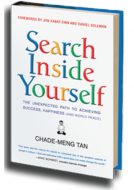 SEARCH INSIDE YOURSELF: THE UNEXPECTED PATH TO ACHIEVING SUCCESS, HAPPINESS (AND WORLD PEACE)
SEARCH INSIDE YOURSELF: THE UNEXPECTED PATH TO ACHIEVING SUCCESS, HAPPINESS (AND WORLD PEACE)
Författare: Chade-Meng Tan
Recommended by: Anders Richtnér, CEO, SSE Executive Education
“Another book that has come handy facing the pandemic is Search Inside Yourself: The Unexpected Path to Achieving Success, Happiness (and World Peace) by Chade-Meng Tan. The book as such is simple in the sense that it contains a practical guide to the reader on how to learn about how to look and search inside oneself. One could call it a guidebook, where the true value from the book lies in the ease of implementation of practices into one’s own life. These practices are simple to use, but strong when being used as it connects our mind to our body.
I have found the practices in the book particularly helpful when things have been unclear, uncertain, and ambiguous. In these types of situations, it is easy to feel overwhelmed, but throughout the book there are numerous of examples and advice on how to act and find our best selves and move forward with ease.
I believe we still have miles to go to fully understand how we can address the new realities we are facing – and knowing what the future will look like. Still, with these two books as company on the journey going forward, at least I stand ready to face the future with a curious and open mind.”
THE WORLD NEEDS GREAT LEADERS. BE ONE!
We offer a wide range of educational programs. Find the right education for you >>
